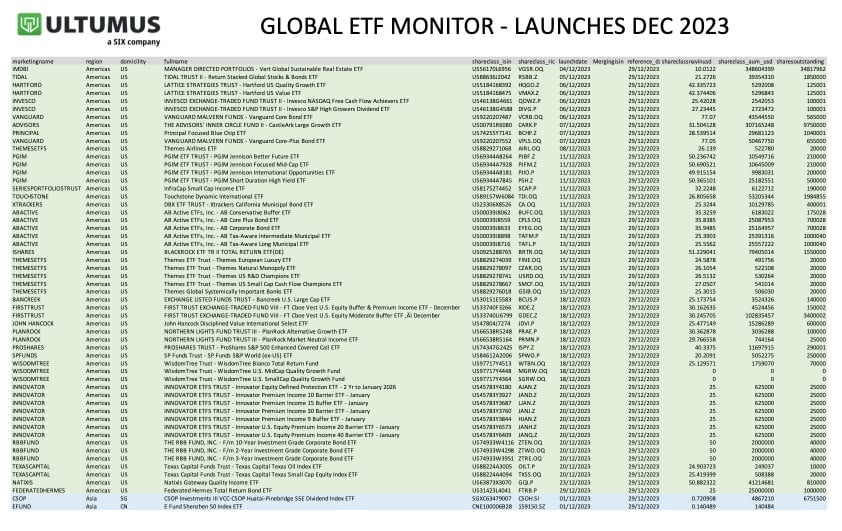USA
French newcomer list hedge fund clone ETF
iM Global Partners, a subsidiary of the French private equity firm Eurazeo, is making its ETF debut, listing a managed futures ETF that clones the asset allocations of America’s top commodity trading advisor hedge funds.
The iM DBi Managed Futures Strategy ETF (DBMF) will use a proprietary quantitative model to get a good idea of “the current asset allocation of a selected pool of the largest commodity trading advisor hedge funds,” the prospectus says. It will then work to try and clone them, going entirely off the model.
Like almost every managed futures fund, DBMF will take long/short positions in derivatives, mostly futures.
The fund charges 0.85%.
Analysis – sure, why not?
Cloning the strategies of hedge funds is nothing new. AlphaClone has an ETF (ALFA) that uses the publicly disclosed asset allocations (and stock picks) from hedge funds to pick stocks. Like today’s listing, it also looks at historical returns to try and fill in the blanks left by quarterly disclosures.
How has it fared? Well, ALFA has underperformed SPY since its inception in 2012 and – in what is seldom a good sign – the fund changed indexes in 2017 after an extended period of underperformance. The fund has $22 million under management.
We’ll have to wait and see how today’s listing compares.
Yet another BlackRock ESG ETF...
BlackRock is listing yet another ESG ETF, in case anyone in the market is not completely satisfied with the company’s already vast ESG ETF suite. The iShares ESG MSCI USA Leaders ETF (SUSL) begins with the MSCI USA Index and then does the almost-compulsory ESG thing of removing companies in the tobacco, alcohol, gambling, nuclear power and weapons industries. The companies surviving these exclusions are then ranked by MSCI for how good they do by society and the environment, “using a sector-specific key issue weighting model,” the prospectus says.
Following these eligibility screens, companies are then ranked based on ESG rating, current index membership, sector adjusted ESG scores, and free-float adjusted market capitalization.




